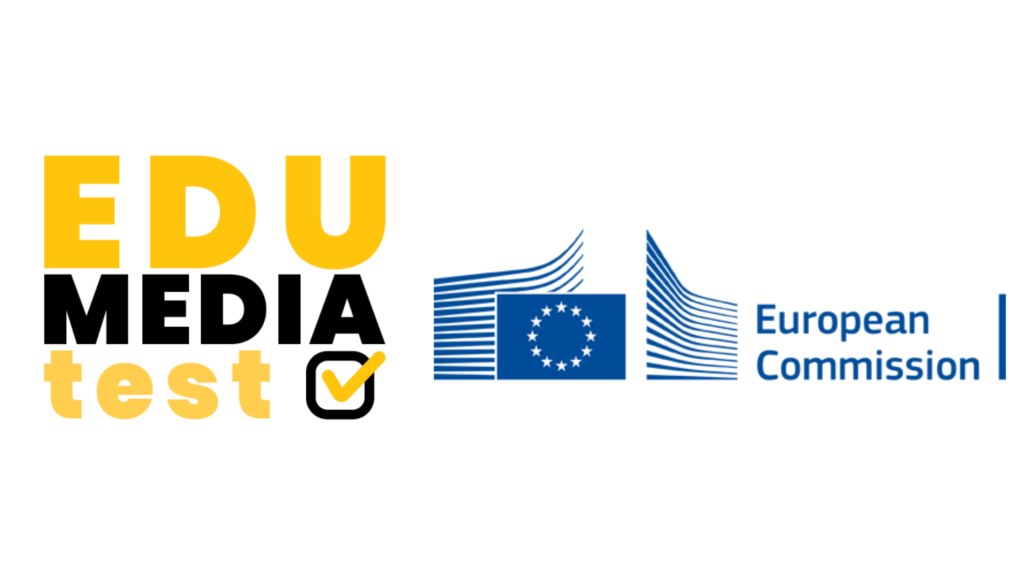Regulators and public institutions in seven countries will develop a tool to evaluate and improve media education for European pupils aged 14 to 18
- It will assess pupils’ ability to identify disinformation, detect hidden interests in sources, spot stereotypes, and encourage them to behave responsibly when it comes to copyright
- The seven countries involved in the EduMediaTest project are: five European audiovisual media regulators (France, Croatia, Portugal, Slovakia and Catalonia), two public educational institutions (Greece and Ireland) and Pompeu Fabra University
- The initiative was one of the five winners of the last call to receive funding from the European Commission under the Media Literacy for All programme
Audiovisual media regulators and public institutions in seven countries will develop an interactive digital tool to evaluate and improve media education for European pupils aged 14 to 18.
Entitled EduMediaTest, the project is coordinated by the Catalan Audiovisual Council (CAC) with participation from the Pompeu Fabra University (UPF) Faculty of Communications, as well as audiovisual media regulators from another four countries: Agencija za elektronicke medije (AEM) from Croatia; Rada pre vysielanie a retransmissiu (CBR) from Slovakia; Conseil Supérieur de l’Audiovisuel (CSA) from France, and Entidade Reguladora para a Comunicação Social (ERC) from Portugal; and two educational establishments: the National Centre of Audiovisual Media & Communication (EKOME) from Greece and Webwise (Dublin West Education Centre) from Ireland.
The deadline for delivering the programme to the European Commission (EC), which has partially funded it, is September 2021. The EC will later make it available to institutions in European Union Member States.
 The initiative is part of the EC media education programme Media Literacy for All, which seeks to combat disinformation and help citizens critically manage what they receive on their social networks.
The initiative is part of the EC media education programme Media Literacy for All, which seeks to combat disinformation and help citizens critically manage what they receive on their social networks.
The first phase of the EduMediaTest project is an online evaluation of media skills among pupils aged 14 to 18, while the second will focus on creating interactive teaching materials to rectify any shortcomings found. Hosted on an open access website, the programme is designed for teachers to use it to evaluate their pupils as part of their classroom activities. The evaluation phase entails an interactive questionnaire with 43 questions to test how well pupils can ascertain whether news is reliable, detect hidden interests in sources, spot stereotypes, and encourages them to behave responsibly when it comes to copyright. It will also look at how well pupils can express themselves comprehensibly. To answer the questions, pupils will have to analyse videos and photographs, and search for information online. In the second phase (teaching), the programme will provide media literacy teaching activities that teachers can do in the classroom, based on the results of the evaluation. They will receive a materials dossier targeting the shortcomings found in their pupils. The Media Literacy for All programme provides partial funding for initiatives to boost media education. The EduMediaTest project was one of the 5 winning proposals of the 17 that were submitted in the last call.
Three-month pilot test Before rolling out the interactive tool, the project developers will carry out a pilot test to look at pupils’ understanding of the questions and the test duration. At least 100 pupils aged 14 and 18 in each of the seven participating countries will be involved. The pilot test will run before January 2021.
The definitive questionnaire will be sent out between February and March 2021. The deadline for submitting the project to the European Commission is 1 September 2021, after which the Commission will decide when it will be offered to the public.
The EduMediaTest project is partially funded by the European Commission.






